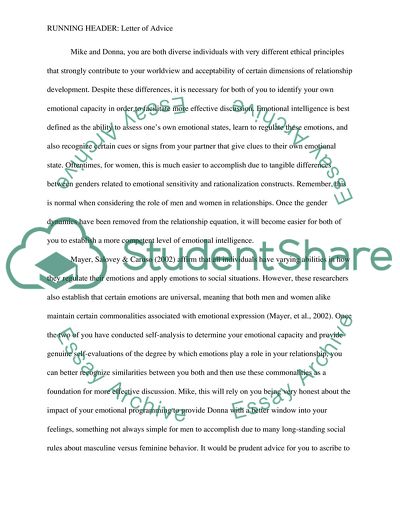Cite this document
(Letter of Advice: Donna and Mike Case Study Example | Topics and Well Written Essays - 2500 words, n.d.)
Letter of Advice: Donna and Mike Case Study Example | Topics and Well Written Essays - 2500 words. Retrieved from https://studentshare.org/psychology/1781128-letter-of-advice-subject-interpersonal-communication-com-200
Letter of Advice: Donna and Mike Case Study Example | Topics and Well Written Essays - 2500 words. Retrieved from https://studentshare.org/psychology/1781128-letter-of-advice-subject-interpersonal-communication-com-200
(Letter of Advice: Donna and Mike Case Study Example | Topics and Well Written Essays - 2500 Words)
Letter of Advice: Donna and Mike Case Study Example | Topics and Well Written Essays - 2500 Words. https://studentshare.org/psychology/1781128-letter-of-advice-subject-interpersonal-communication-com-200.
Letter of Advice: Donna and Mike Case Study Example | Topics and Well Written Essays - 2500 Words. https://studentshare.org/psychology/1781128-letter-of-advice-subject-interpersonal-communication-com-200.
“Letter of Advice: Donna and Mike Case Study Example | Topics and Well Written Essays - 2500 Words”, n.d. https://studentshare.org/psychology/1781128-letter-of-advice-subject-interpersonal-communication-com-200.


